Imagine waking up, rolling out of bed, and starting your workday without ever leaving the house. It sounds like a dream, right? Yet, for many remote workers, maintaining motivation can feel like climbing a mountain. The freedom of working from home often comes with its own set of challenges that can leave you feeling isolated and unproductive.
Whether you’re new to remote work or a seasoned pro, understanding how to stay motivated as a remote worker is crucial for success. This guide offers practical strategies and insights to help you navigate the remote work landscape and keep your motivation alive, even on the toughest days.
Understanding the Remote Work Landscape
Remote work has transformed the traditional office setting, leading to a new era of flexibility and independence. However, it also requires a unique set of skills and adaptations. To truly excel in this environment, it’s essential to understand both its rise and the common hurdles faced by remote workers.
The Rise of Remote Work
In recent years, remote work has surged in popularity, driven by technological advancements and a shift in workplace culture. Companies have embraced this model, recognizing the benefits of a more flexible workforce.
According to recent statistics, over 30% of the U.S. workforce now engages in some form of remote work. This trend has opened up opportunities for people across the globe, allowing them to balance their professional and personal lives more effectively. However, this shift also demands a high level of self-discipline and motivation.
Stay connected with industry trends by joining remote work communities online. These platforms offer valuable insights and support from fellow remote workers who share their experiences and strategies. By staying informed about the latest developments, you can adapt to changes more easily and maintain your edge in the remote work landscape.

Common Challenges Faced by Remote Workers
While remote work offers numerous advantages, it also presents unique challenges. Isolation, distractions, and the blurred lines between work and home life can lead to decreased motivation and productivity.
Many remote workers find themselves struggling to create a structured routine, which can result in feelings of burnout and disengagement. Understanding these challenges is the first step towards overcoming them and thriving in a remote work environment.
Establish a daily routine to combat the unpredictability of remote work. Set specific start and end times for your workday, and stick to them as much as possible. This structure will help you maintain a healthy work-life balance and improve your overall productivity.
Strategies to Stay Motivated as a Remote Worker
Keeping your motivation levels high requires deliberate effort and strategic planning. By implementing the right techniques, you can create an environment conducive to productivity and personal satisfaction.
Creating a Dedicated Workspace
One of the most effective ways to enhance your remote work motivation is by creating a dedicated workspace. A well-organized and comfortable area can significantly impact your focus and efficiency.
Choose a spot in your home that is free from distractions and set it up with everything you need to perform your tasks efficiently. Personalize it with items that inspire you, such as plants, artwork, or motivational quotes.
Investing in ergonomic furniture can also make a significant difference in your comfort and health. A good chair and desk setup will prevent physical discomfort and encourage better posture, which in turn can boost your productivity.
Remember, your workspace should be a place where you feel empowered and ready to tackle the day’s challenges.

Setting Clear Goals and Boundaries
Setting clear goals is vital for any remote worker aiming to stay motivated. Start by defining both short-term and long-term objectives, ensuring they are specific, measurable, and achievable. Break larger goals into smaller tasks to avoid feeling overwhelmed and celebrate each milestone you achieve.
Equally important is establishing boundaries between your work and personal life. Communicate your work hours to family and friends and resist the urge to check emails or complete tasks outside of these hours. This separation is crucial for maintaining mental well-being and preventing burnout.
Use digital tools like task managers or calendars to keep track of your goals and deadlines. These tools can help you visualize your progress and stay on top of your tasks. Regularly review and adjust your goals to ensure they remain aligned with your personal and professional aspirations.
Incorporating Breaks and Self-Care
Incorporating regular breaks into your workday is essential for sustaining motivation. The Pomodoro Technique, which involves working for 25 minutes followed by a 5-minute break, can enhance focus and prevent fatigue. Use these breaks to stretch, hydrate, or simply relax your mind.
Additionally, prioritize self-care by engaging in activities that rejuvenate you, such as exercise, meditation, or hobbies. Self-care is not a luxury; it’s a necessity for maintaining a healthy work-life balance and fostering long-term motivation.

Overcoming Tough Days
No matter how well-prepared you are, tough days are inevitable. Recognizing when you need a motivational boost and knowing how to recharge can make all the difference.
Recognizing When You Need a Boost
It’s crucial to recognize signs of dwindling motivation early on. These can include procrastination, difficulty concentrating, or a lack of enthusiasm for tasks you usually enjoy. By acknowledging these signs, you can take proactive steps to regain your motivation before it impacts your productivity.
On such days, give yourself permission to step back and reassess your workload. Sometimes, a brief change of scenery or a few moments of mindfulness can reignite your passion and help you refocus on your goals.
Fun Activities to Recharge Your Mind
When the going gets tough, engaging in fun activities can be an effective way to recharge. Whether it’s a quick dance session, a walk in nature, or playing a musical instrument, these activities can elevate your mood and energy levels.
Another great option is to explore creative outlets, such as painting or writing. These activities allow you to express yourself and can provide a refreshing break from your usual routine. Remember, it’s okay to take a step back and indulge in activities that bring you joy.

Finding Support and Community
Connecting with others who understand the unique challenges of remote work can be incredibly supportive. Online forums, social media groups, and local meetups provide opportunities to share experiences and gain insights from fellow remote workers.
Building a support network can help you feel less isolated and more motivated. Reach out to colleagues or friends who work remotely, and don’t hesitate to seek advice or encouragement when needed. A sense of community can be a powerful motivator on tough days.
Maintaining Productivity at Home
Achieving sustained productivity at home involves mastering time management and leveraging the right tools. By optimizing your work processes, you can maintain high levels of efficiency and motivation.
Time Management Techniques
Effective time management is key to maintaining productivity at home. Start by identifying your most productive hours and scheduling your most demanding tasks during these periods. Techniques such as time blocking or the Eisenhower Box can help you prioritize tasks and manage your workload effectively.
Additionally, consider using timers or alarms to remind you to take breaks or switch tasks. This approach can prevent burnout and help you maintain a steady pace throughout the day. Remember, consistency is crucial for building lasting productivity habits.
Experiment with different time management techniques to find what works best for you. Each person’s productivity rhythm is unique, so tailor your approach to fit your preferences and lifestyle. Regularly assess and adjust your strategies to ensure they continue to meet your needs.

Tools and Resources for Remote Work
Leveraging the right tools can significantly enhance your remote work experience. Communication platforms like Slack or Zoom facilitate seamless collaboration with team members, while project management tools like Trello or Asana help you keep track of tasks and deadlines.
Consider using productivity apps that block distractions or track your time spent on various activities. These tools provide valuable insights into your work habits and help you identify areas for improvement. By optimizing your toolkit, you can streamline your workflow and boost your motivation.
| Tool | Purpose | Benefits |
|---|---|---|
| Slack | Communication | Facilitates team collaboration and reduces email overload. |
| Trello | Project Management | Helps organize tasks and track progress visually. |
| RescueTime | Productivity Tracking | Provides insights into time usage and helps identify distractions. |
Real-Life Stories of Remote Workers
Learning from the experiences of others can provide valuable insights and inspiration. Real-life stories of remote workers offer practical lessons and highlight the potential for success, even in the face of adversity.

Lessons Learned from Tough Days
Many remote workers have faced tough days and emerged stronger. For instance, Sarah, a freelance graphic designer, recalls a period when she struggled with isolation and self-doubt. By reaching out to fellow designers and participating in online workshops, she discovered new techniques and regained her confidence.
Similarly, Mark, a software developer, found himself overwhelmed by a demanding project. By breaking the work into smaller tasks and celebrating each achievement, he managed to stay motivated and complete the project successfully. These stories remind us that challenges are an opportunity for growth and learning.
Success Stories of Staying Motivated
Success stories abound in the remote work world. Take Alex, a digital marketer who turned his home office into a hub of creativity and innovation. By setting clear goals and maintaining a disciplined routine, he consistently exceeded client expectations and grew his business.
Another inspiring example is Lisa, a content writer who found motivation through community involvement. By joining a writers’ group and attending virtual events, she expanded her network and gained valuable feedback, ultimately enhancing her writing skills.
These stories demonstrate that with the right mindset and strategies, remote work can lead to remarkable achievements.

Your Journey to Sustained Motivation
Your journey to sustained motivation as a remote worker is a personal and evolving process. By setting yourself up for long-term success and fostering a positive mindset, you can thrive in the remote work landscape.
Setting Up for Long-Term Success
Long-term success in remote work requires a proactive approach. Regularly assess your goals and adjust them to align with your evolving priorities. Embrace continuous learning by seeking out new skills and knowledge relevant to your field.
Additionally, maintain a growth mindset by viewing challenges as opportunities for development. Celebrate your achievements, no matter how small, and use them as motivation to keep pushing forward. Remember, your success is a journey, not a destination.
Encouraging a Positive Mindset
Fostering a positive mindset is essential for overcoming remote work challenges. Practice gratitude by acknowledging the aspects of remote work that you appreciate, such as flexibility and autonomy. Surround yourself with positivity by connecting with supportive colleagues and mentors.
Engage in activities that nurture your well-being, such as mindfulness or journaling. These practices can help you stay grounded and focused, even on challenging days. By cultivating a positive outlook, you’ll find it easier to stay motivated and resilient in the face of adversity.
Develop a gratitude journal to reinforce a positive mindset. Each day, write down three things you’re grateful for, focusing on both personal and professional aspects. This practice can shift your perspective and help you find joy in the small victories of remote work.





